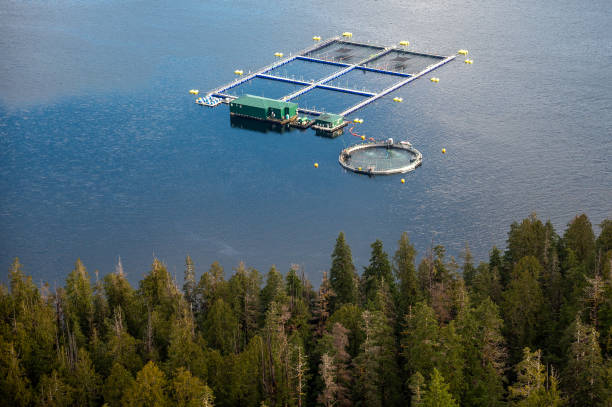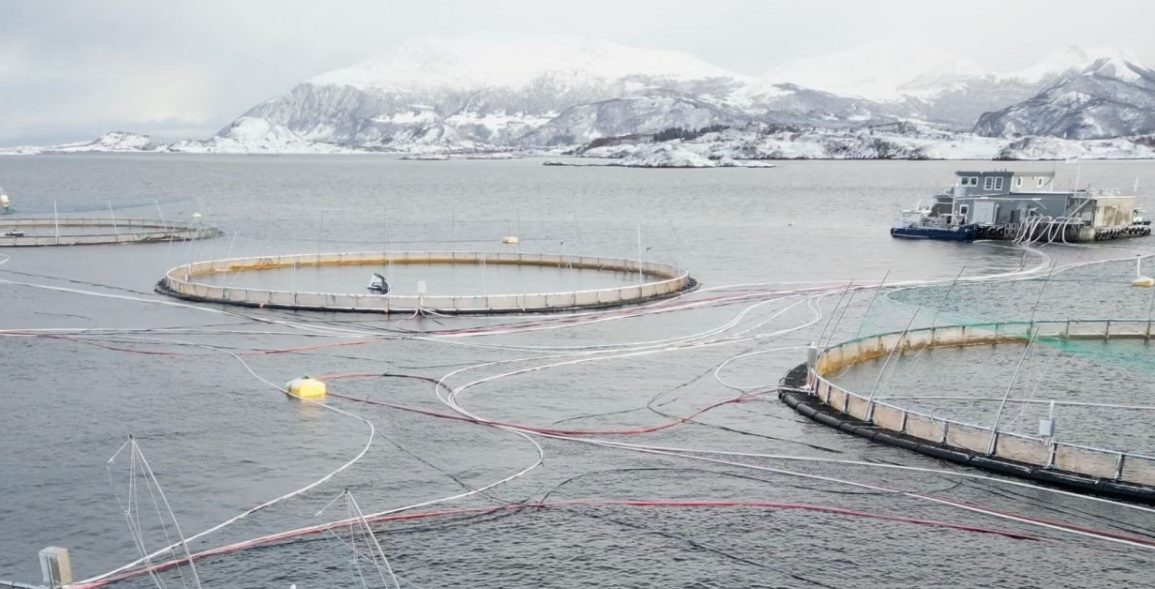On a calm August morning, bright sunshine lit up the coast as Skookum John guided his fishing boat, Sweet Marie, out of Tofino’s harbor and into the vast waters of Clayoquot Sound on Vancouver Island.
Tourists onshore soaked in the late summer warmth, exploring shops and cafes, while others ventured out on boats to catch a glimpse of whales.
John, a member of the Ahousaht First Nation, pointed to the lush green rainforests and islands as he moved deeper into Clayoquot Sound, a Unesco biosphere reserve.
Sea otters, once near extinction, floated on the surface, along with seals and bald eagles.
The calm day was overshadowed by the ongoing controversy surrounding salmon farms in the area.

Conservationists, like Dan Lewis of Clayoquot Action, raised concerns about the farms’ effect on wild salmon, which have dwindled in numbers.
The Canadian government recently announced a ban on open-net salmon farms by 2029, but local communities remain divided on the issue.
John, skeptical of government promises, took conservationists to inspect a farm nearby.
Salmon farming remains a vital source of income for the Ahousaht Nation, but environmental concerns persist, especially regarding sea lice and diseases affecting wild salmon.
Cermaq Global, a major operator, is testing semi-closed containment systems to reduce environmental impact, though the future of these farms remains uncertain.
As the day wore on, John remained firm in his belief that protecting the natural wealth of the region was more important than short-term economic gain.
The waters and wildlife of Clayoquot Sound are irreplaceable treasures, he said and must be safeguarded for future generations.

